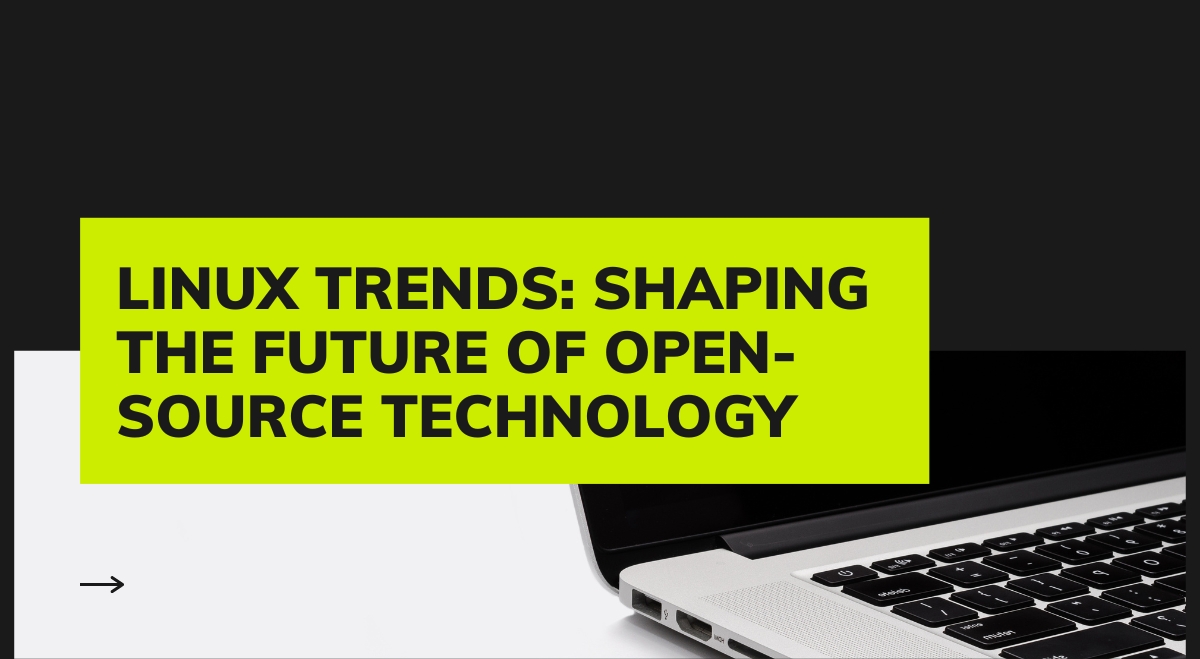The world of Linux is evolving rapidly, with exciting developments across various sectors of technology. From cloud computing to artificial intelligence, Linux continues to play a pivotal role in shaping the future of open-source solutions. Let’s explore the key trends that are defining the Linux landscape in 2024 and beyond.
The Rise of Linux in Cloud Computing
Linux has become the backbone of cloud infrastructure, powering the majority of servers and cloud platforms worldwide. Major cloud providers like Amazon Web Services (AWS), Google Cloud Platform, and Microsoft Azure heavily rely on Linux distributions for their services. This dominance is expected to grow further as more businesses migrate to the cloud.
The popularity of Linux in cloud environments can be attributed to its stability, security, and cost-effectiveness. Enterprise-grade distributions like Red Hat Enterprise Linux (RHEL) and SUSE Linux Enterprise Server are optimized for cloud deployments, offering robust features and support for containerization technologies.
Linux and Containerization: A Perfect Match
Speaking of containerization, Linux has played a crucial role in the widespread adoption of container technologies like Docker and Kubernetes. These tools have revolutionized application deployment and management, allowing developers to create portable, scalable, and efficient software solutions.
The symbiotic relationship between Linux and containerization is evident in the growing popularity of container-optimized Linux distributions such as CoreOS and Rancher OS. These lightweight distributions are designed specifically for running containerized applications, further cementing Linux’s position in modern DevOps practices.
Linux in IoT and Edge Computing
As the Internet of Things (IoT) continues to expand, Linux is emerging as a preferred operating system for connected devices and edge computing solutions. Its flexibility, small footprint, and extensive hardware support make it ideal for powering everything from smart home devices to industrial sensors.
Embedded Linux distributions like Yocto Project and Buildroot are gaining traction in the IoT space, offering customizable solutions for device manufacturers. Additionally, edge-specific Linux distributions such as Ubuntu Core and Fedora IoT are addressing the unique challenges of edge computing, including security, remote management, and real-time processing capabilities.
Security Trends in Linux
Security has always been a strong suit for Linux, and recent trends show a continued focus on enhancing protection against cyber threats. Major distributions are implementing advanced security features like:
- Mandatory Access Control (MAC) systems like SELinux and AppArmor
- Improved cryptography and encryption tools
- Enhanced kernel security modules
- Automated security updates and patch management
The open-source nature of Linux allows for rapid identification and patching of vulnerabilities, often outpacing proprietary operating systems in terms of security responsiveness.
Linux on the Desktop: A New Era?
While Linux has long dominated the server market, its presence on desktop computers has been relatively modest. However, recent trends suggest a potential shift in this dynamic. Improved user interfaces, better hardware compatibility, and increased focus on user-friendly distributions like Ubuntu and Linux Mint are making Linux more appealing to everyday users.
The growing concern over data privacy and the desire for alternatives to Windows and macOS are driving more individuals and organizations to explore Linux as a viable desktop option. Educational institutions and government agencies in various countries are also adopting Linux to reduce costs and increase control over their IT infrastructure.
Linux in AI and Machine Learning
The field of artificial intelligence and machine learning is experiencing rapid growth, and Linux is at the forefront of this revolution. Many popular AI and ML frameworks, such as TensorFlow, PyTorch, and scikit-learn, are primarily developed and optimized for Linux environments.
Linux distributions tailored for data science and AI development, like Ubuntu Data Science and Deep Learning AMI, are gaining popularity among researchers and developers. These distributions come pre-configured with essential tools and libraries, streamlining the setup process for AI projects.
The Future of Linux Kernel Development
The Linux kernel continues to evolve at an impressive pace, with new features and optimizations being added regularly. Recent kernel releases have focused on improving performance, enhancing security, and expanding hardware support.
Some notable trends in kernel development include:
- Better support for new CPU architectures and accelerators
- Improved power management for mobile and embedded devices
- Enhanced file system performance and features
- Continued refinement of the real-time kernel for mission-critical applications
The collaborative nature of Linux kernel development, with contributions from individual developers and major corporations alike, ensures that the operating system remains at the cutting edge of technology.
Conclusion
As we look to the future, it’s clear that Linux will continue to play a vital role in shaping the technological landscape. From powering cloud infrastructure to enabling cutting-edge AI research, Linux’s versatility and open-source philosophy make it an indispensable tool for innovation.
For IT professionals and Linux enthusiasts, staying informed about these trends is crucial. Whether you’re managing cloud deployments, developing IoT solutions, or exploring the frontiers of AI, Linux offers a robust and flexible platform to build upon.
As the Linux ecosystem continues to evolve, we can expect to see even more exciting developments in the coming years. The open-source community’s dedication to collaboration and innovation ensures that Linux will remain at the forefront of technological progress for years to come.
What are your thoughts on these Linux trends? Are there any other developments you’re particularly excited about? Join the conversation and share your insights with fellow Linux enthusiasts!

